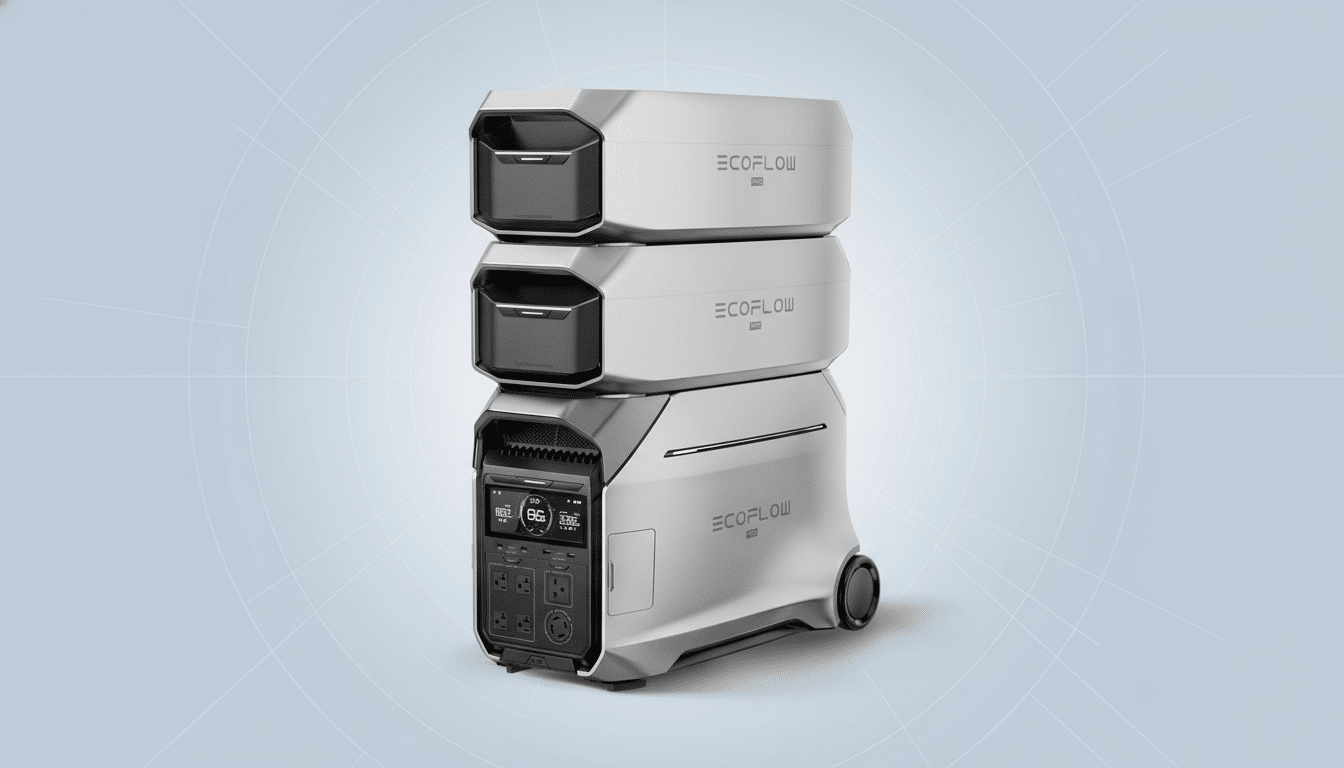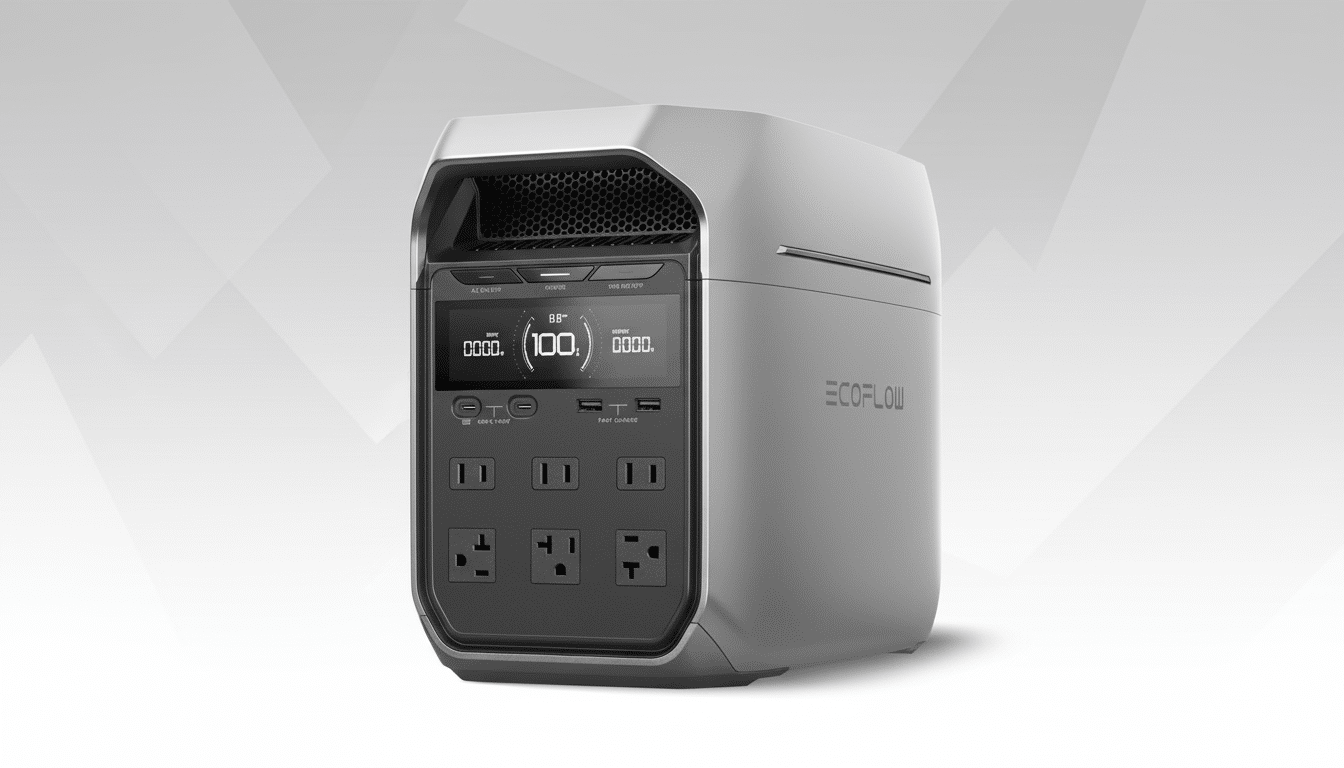The EcoFlow Delta 3 power station just crashed to $589 at Amazon, a 41% drop from its typical $999 price.
The deal also includes a free 45-watt solar panel (it’s usually sold separately), so it’s an even bigger move for anyone getting ready to hunker down during storm season or who plans to hit the road on a series of off-grid weekends.

Why This EcoFlow Delta 3 Deal Is Among the Best Values
Its 1,536Wh of stored power delivers a practical price per watt-hour of around $0.38 for the Delta 3 at $589 — a keen price-per-capacity ratio for a mainstream brand such as Schenker or XMG (more below). Category leaders’ comparable systems typically cost closer to $0.50–$1.00 per watt-hour outside of major sales. The fact that it includes a 45W panel (a $79 value in most cases) is icing on the cake, whether you want to trickle-charge between uses or keep rations topped up during prolonged power outages.
It’s also one of the rare stations to offer both as much capacity and portability for less than $600. Though inexpensive to operate, micro stations can’t reasonably support a home office. Conversely, those large rigs with wheels and 2–3kWh batteries are great for full home circuits too, but are multiple times the cost. In between is the Delta 3: significant energy, small footprint, and an extremely competitive price point.
What 1,536Wh Translates To In The Real World
Capacity translates to runtime. As a general rule of thumb, hours ≈ (battery watt-hours × 0.85) ÷ device watts, allowing for typical inverter loss. With that same amount of power, a 10W Wi‑Fi router can operate for approximately 130 hours, a 60W laptop could work for around 21 hours, and a 40W CPAP several nights. By EcoFlow’s own estimates, a Delta 3 is capable of keeping a blender spinning for over an hour — useful for tailgates or field camps.
For communication purposes and work continuation, that 1.5kWh buffer can mean a laptop, router, and phone charging all day without the worry of range anxiety. And it’s a convenient size for running a mini fridge during a brief power failure, keeping medications refrigerated or food safe until the refrigerator starts up again.
Work-From-Home Stability and Power Outage Readiness
The Delta 3’s UPS function switches over in about 15 milliseconds, which is fast enough to smooth out most flickers and short sags that would otherwise have disrupted a video call or scrambled a document. And many routers and laptop power bricks can withstand brief dips, so this swift handoff keeps the home office purring.
Reliable backup is increasingly relevant. The U.S. Energy Information Administration has found that, in recent years, many areas have reported an increase in the average length of outages, often caused by extreme weather events. For rental and condo dwellers who can’t set up whole-home systems, a mid-size portable station is a practical resilience upgrade that requires no permanent wiring.

Solar and Recharging Considerations for Daily Use
The bundled 45W solar panel is best thought of as a handy freebie — not your main charging source. In full sun, it would take more than a day of constant premium conditions to fill 1,536Wh. In natural light, expect slower top-ups. For speedier recharging off the grid, many users combine this kind of station with 160W–220W panels; on-grid, EcoFlow units are by and large known for relatively fast AC recharge times in lab tests conducted by independent reviewers.
If you are constructing your own off-grid kit, it should be calculated in terms of a daily energy budget. Your device watts and an estimate of how long the devices will run are suggested by the National Renewable Energy Laboratory to calculate your needs for solar system size. Having 24 to 36 hours produces less downtime between uses, and you can keep a more stable state of charge on multiday trips.
How It Compares With Similar Portable Power Options
Compared with similar options, the sale moves the Delta 3 into standout status. The Jackery Explorer 1500 Pro (around 1,512Wh) and Bluetti models in the 1–1.5kWh capacity range are standout options, but tend to retail above our best deals except when discounted. To have a clear cost-per-capacity advantage from this price, the Delta 3 offers the best value, and comes with flexibility should there be light solar use; it’s good to go right out of the box.
Port arrangements and app integration depend on the brand, but EcoFlow’s ecosystem of products is widely acclaimed for its ease-of-use controls and quick wall charging. If you already own EcoFlow panels or other accessories, this unit fits seamlessly into the mix.
Bottom Line on the EcoFlow Delta 3 Deal and Value
The EcoFlow Delta 3 is a killer purchase for anyone in need of a reliable backup for home internet, laptops, and small appliances or just the ultimate power hub for camping and the like, with its 41% discount. You are getting 1,536Wh of capacity, an on-the-fly UPS-style switchover for power dips, and a complimentary 45W solar panel for opportunistic charging.
Deal availability can change quickly and lightning deals sometimes sell out, but while this price is in effect, it’s one of the best values on a high-capacity portable power station we’ve seen from a top-tier brand.

